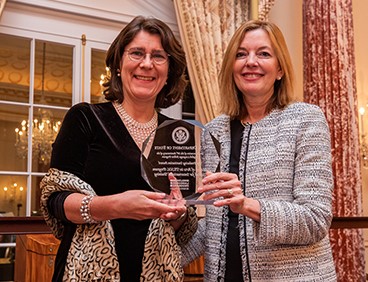
57 SIT alumni have been named U.S. State Department Fellows since 2006
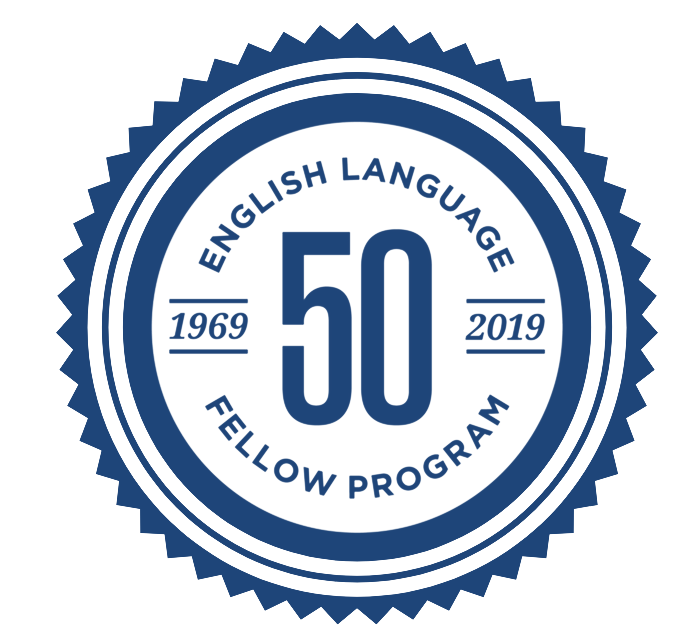
The U.S. Department of State has recognized School for International Training with the English Language Fellow Top Producing Institution Award, which celebrates SIT’s position as the institution that has prepared the largest number of TESOL professionals to become Fellows.
Building peace through language
SIT received the award at the English Language Fellow Program’s 50th Anniversary Celebration on Nov. 5, in Washington, D.C. Dr. Sophia Howlett, president of SIT, attended the celebration to receive the award.
“We are so proud to receive this award and to have so many MA TESOL alumni who are using what they learned at SIT to improve English language education around the world,” Howlett said. “The passion and dedication of our students, alumni, and faculty are what have made SIT a leader in TESOL for more than 50 years.”
SIT launched its MA in TESOL program in 1969. Since 2006, the year the State Department says it began keeping track, 57 SIT alumni have received the prestigious fellowships, which send U.S. TESOL educators abroad to assist U.S. embassies in delivering quality English language programs.
SIT ranked first among seven top sending institutions that received State Department awards at the ceremony. Others were the University of Colorado Boulder; University of Oregon; Columbia University; Middlebury Institute of International Studies; University of Washington; and San Francisco State University.
SIT TESOL program chair Dr. Leslie Turpin said the award “is a testament to the collective commitment of our students and faculty to making the world a better place through their deep love of learning and teaching.”
“SIT is honored to have its MA TESOL program recognized by the U.S. Department of State with this prestigious award,” Turpin said. “I am proud of the achievements of our alumni and grateful to the many TESOL faculty members over the past 50 years who have devoted their careers to creating a program that supports students to develop a teaching practice grounded in intercultural competence, self-awareness, reflection on and learning from experience.”
Among those faculty is Dr. Diane Larsen-Freeman, SIT professor emerita and an international leader in the field of TESOL education. “I am pleased, but not at all surprised, that the U.S. State Department has honored SIT for being a top English Language Fellows-producing institution,” said Larsen-Freeman. “As I travel, I have encountered many Fellows, and I have witnessed their professionalism and their dedication to the students they serve. These qualities are also evident in SIT alumni, who, in addition to their excellent teaching, adaptability, and intercultural competence, have learned how to learn from experience.”
Since 1969, the State Department’s English Language Fellow Program, a public diplomacy initiative, has sent thousands of highly qualified and experienced Fellows are cultural ambassadors who promote English language learning and mutual understanding through cultural exchange on 10-month fellowships around the world.
Among 200 English Language Fellows named for 2019-20 is SIT alumna Loren Lee Chiesi, who will spend 10 months at the English Language Proficiency Center in Myanmar to oversee a teacher training program.
Click here to learn more about SIT’s MA in TESOL and visit English Language Fellow Program to learn more about the U.S. Department of State fellowship.
For U.S. Department of State press inquiries call 202-632-6452 or e-mail [email protected].
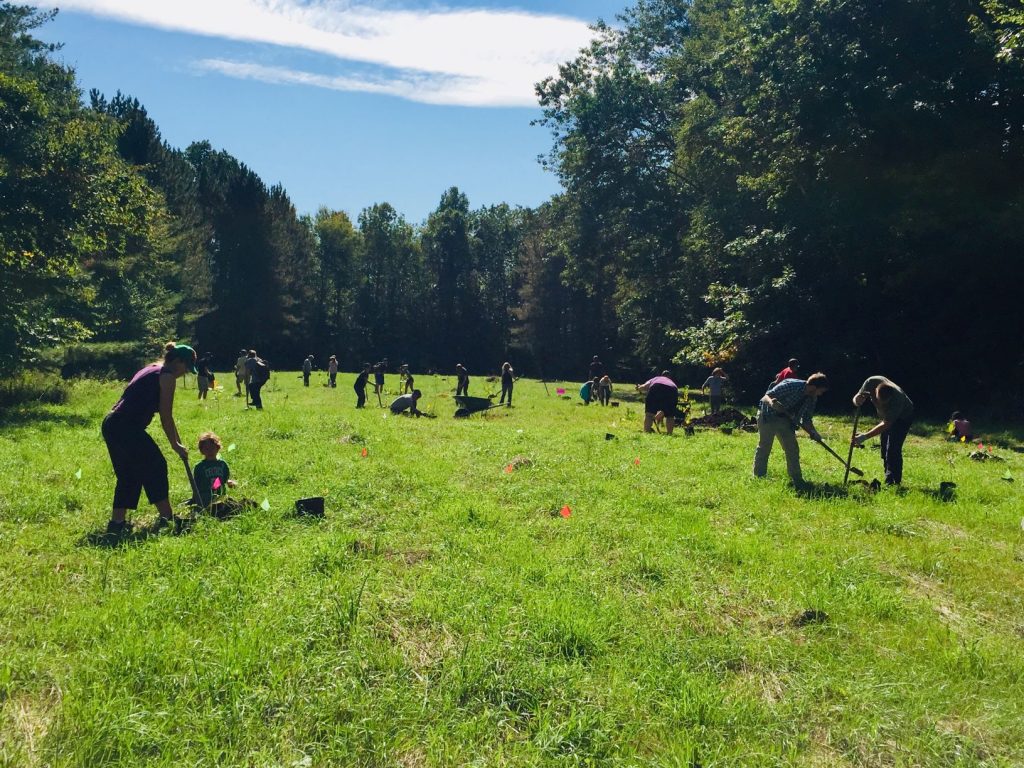
Capping a global week of climate action, Brattleboro community members joined SIT staff, faculty, and alumni on Sept. 28 to reforest approximately three acres on our Vermont campus.
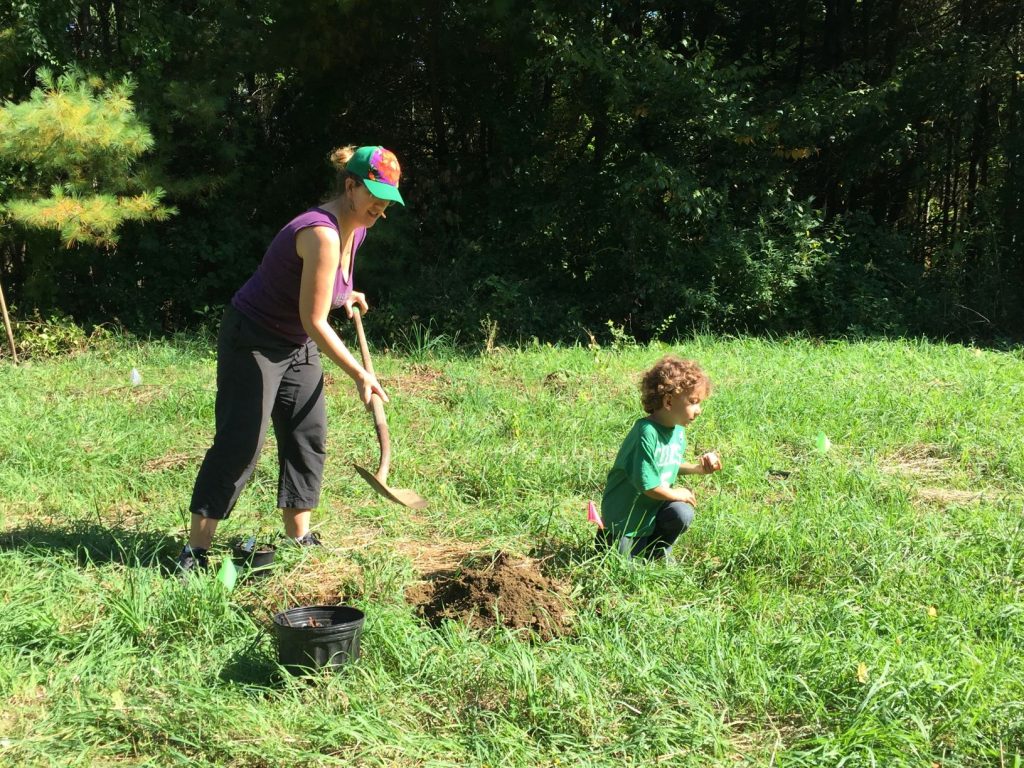
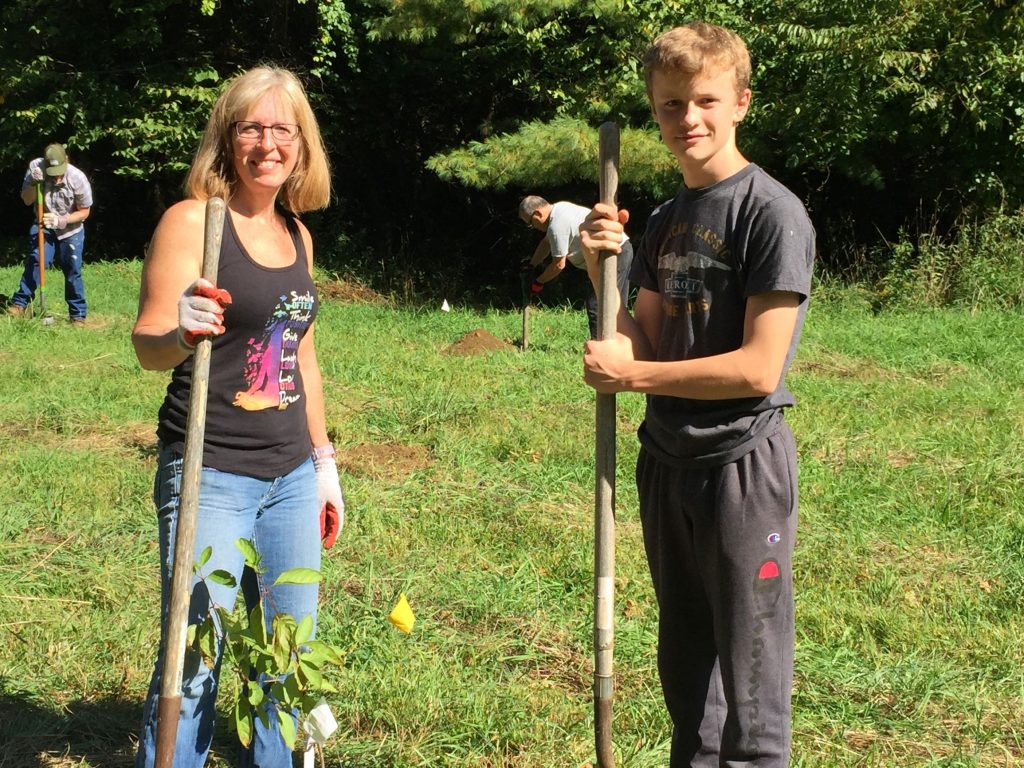
By planting nearly 200 saplings and shrubs, this area now has the potential to sequester 250 tons or more of carbon dioxide over the next 40 years.
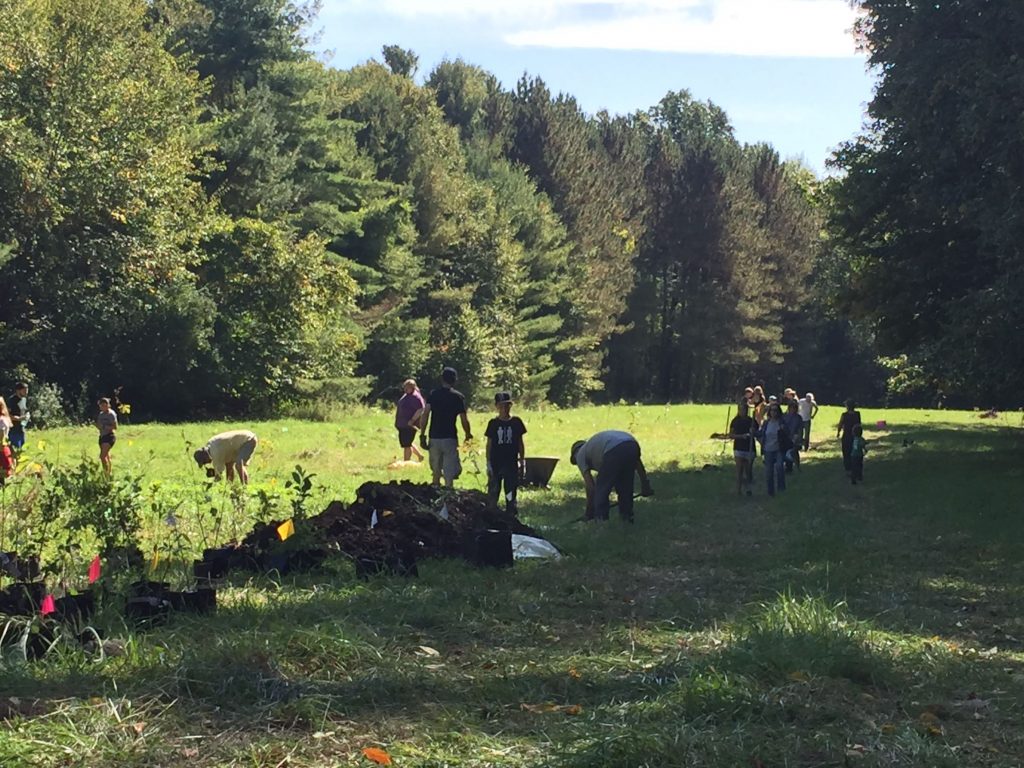
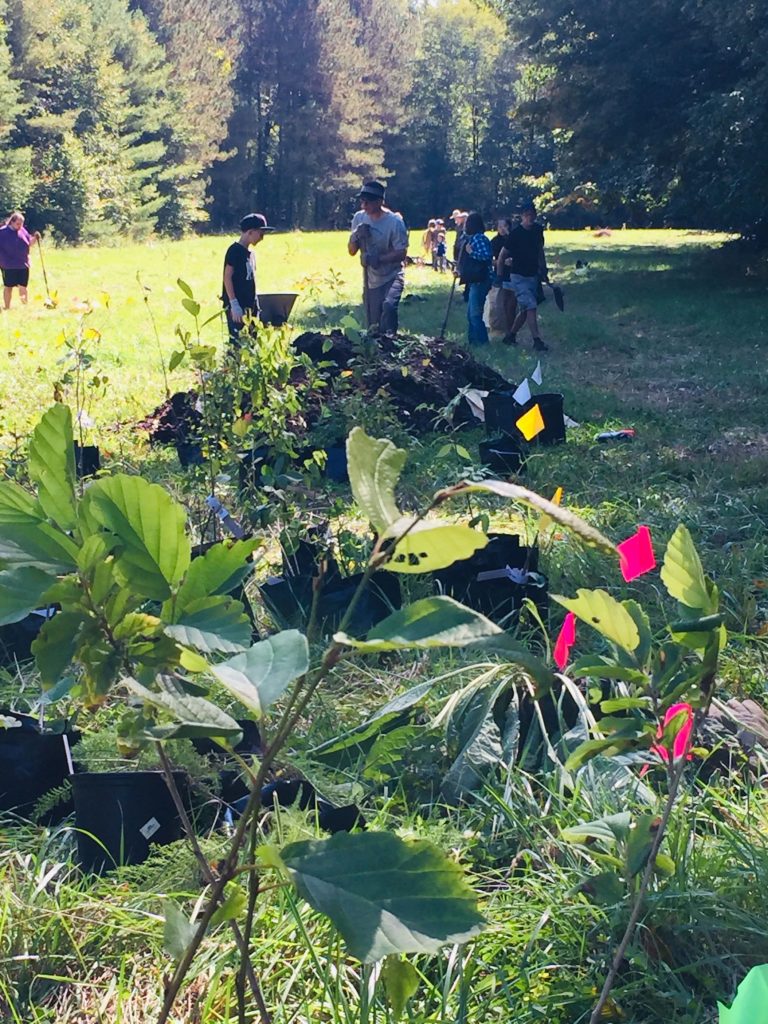
Supported by the SIT Lessenco Fund, the project stems from a 2019 capstone — Sustainability at SIT: A Look at the Past, a Plan for the Future — by Sustainable Development grad student (now alumnus) Taliesin Haugh. In his capstone, Haugh calls for sustainable local food production, new development models, and reduction of wealth inequity at SIT.
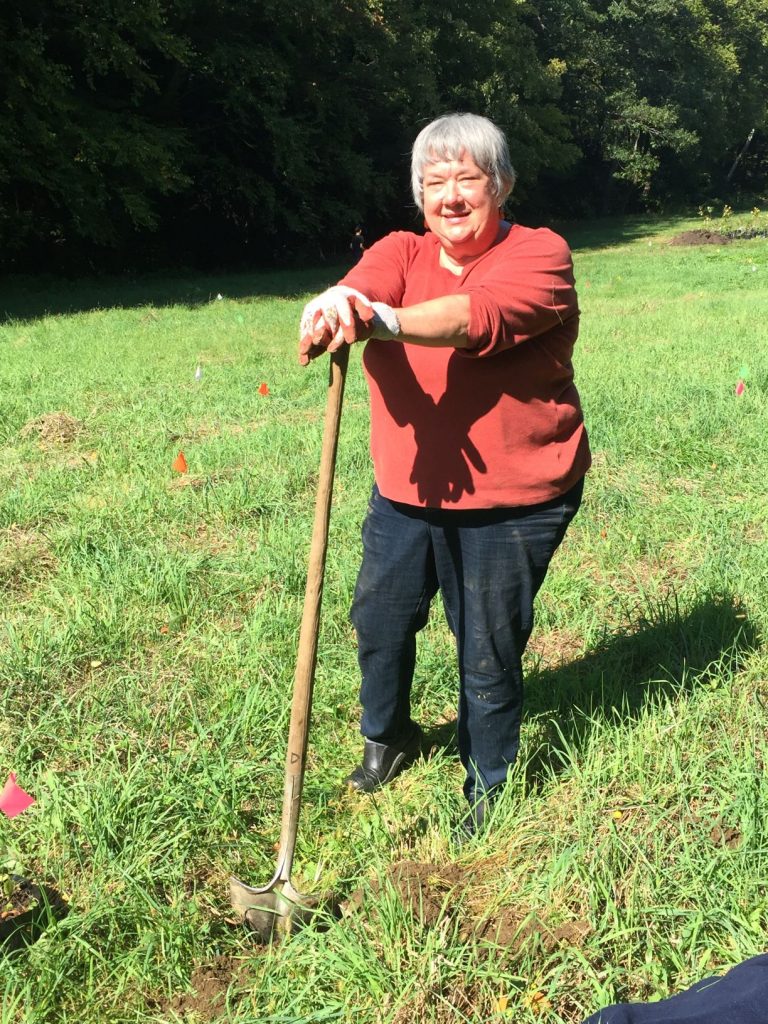
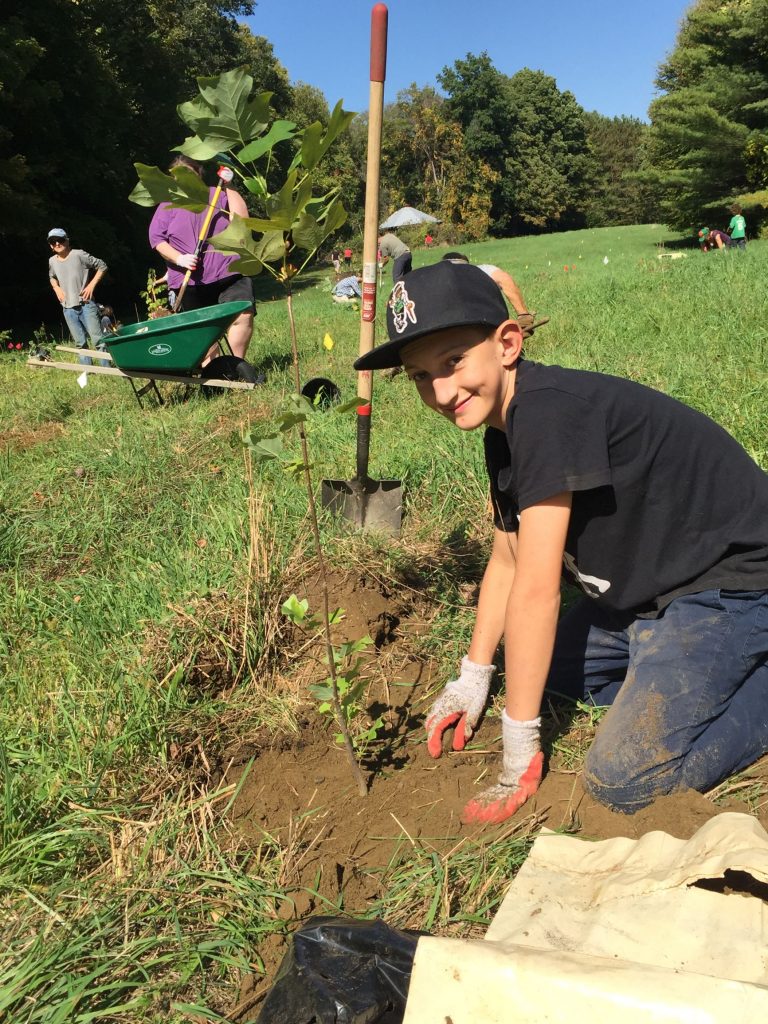
The Lessenco Fund was established to honor the life and ideals of SIT Graduate Institute student Susan Lessenco, who died in 1981 at the age of 26 while on assignment for Save the Children in Tunisia. Her father created the fund in her memory so SIT students could make meaningful contributions to the world in Susan’s name and spirit.
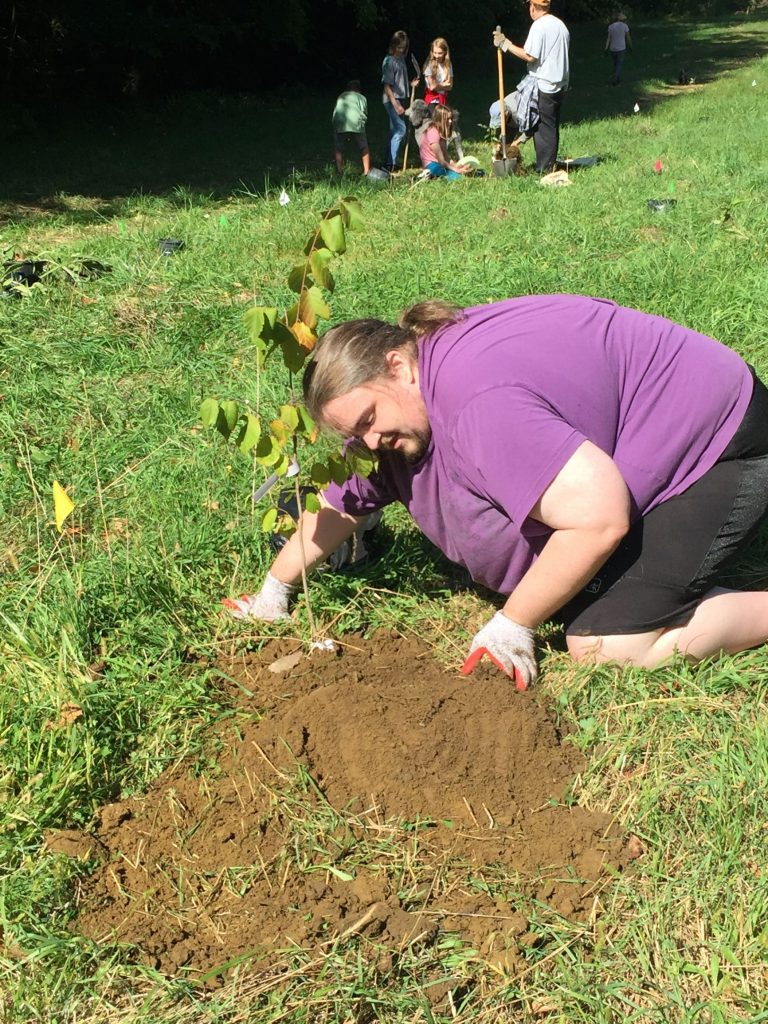
Lowery has a master’s degree in international policy and a PhD in geography and integrative conservation, both from the University of Georgia. Her research focuses on the politics of agricultural investment in Africa, exploring issues related to philanthropy, genetically modified crops, and food sovereignty. Her interest in food politics stems from a childhood growing up on a family farm in southwest Georgia as well as her experience living in Niger as a Peace Corps volunteer. She has worked on farms and in restaurants committed to building local food systems and has conducted applied research on agricultural issues such as irrigation efficiency and the social effects of large-scale commodity crop production.
Her teaching is based on the premise that addressing “wicked” environmental problems requires the transformation of our food and energy systems, and that this transformation must be based in racial and economic justice. She is interested in facilitating dialogue around “political imaginations,” as seen in cooperative land governance models, racial justice in supply chains, and democratic funding relationships between agricultural producers and philanthropic organizations.
See Dr. Parker’s full list of publications
Courses Taught
Graduate Courses
Global Practicum
Undergraduate Courses
Global Practicum
Development Practice
Politics, Ethics, and Food Security
Getting from Field to Fork
Select Publications
German, L., J. Heppinstall, T. Biggs, L. Parker, and M. Salinas. (2020). The environmental effects of sugarcane expansion: A case study of changes in land and water use in southern Africa. Applied Geography 121: 102240
German, L. and L. Parker. (2019). The social construction of “shared growth”: Zambia Sugar and the uneven terrain of social benefit. Journal of Agrarian Change 19(1): 181-201
Vercoe, R., N. Heynen, R.D. Hardy, J. Demoss, S. Bonney, K. Allen, J.P. Brosius, D. Charles, B. Crawford, S. Heisel, R. de Jesús-Crespo, N. Nibbelink, L. Parker, C. Pringle, A. Shaw, L. Van Sant, M. Welch-Devine. (2014). Acknowledging trade-offs and understanding complexity: Exurbanization issues in Macon County, North Carolina. Ecology and Society 19(1): 23
Research Interests
Soil carbon markets
Food and land justice
Agricultural development/transformation
Pedagogies of solidarity
Politics of philanthropy
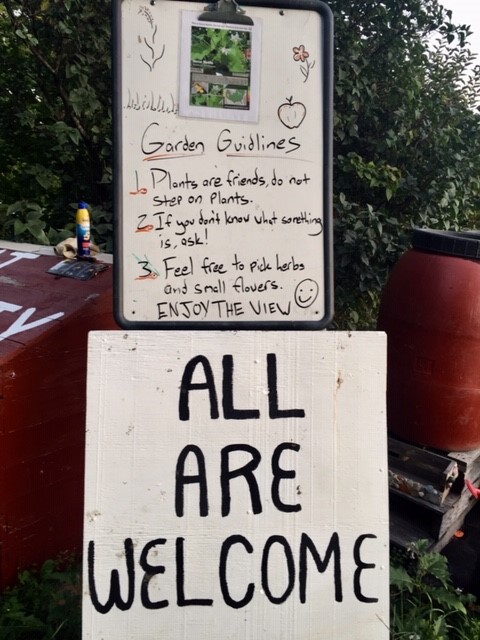
The SIT Community Garden on our Vermont campus has had a great second year. The garden has been exploding with produce over the past month, and we’re happy to be donating fresh, organic vegetables to our local foodbank and community food shelf.
Over the summer the garden has provided food for the campus cafeteria, served as a teaching space for World Learning summer youth program students, and was essential to at least two SIT Graduate Institute capstones.
So, as the last of the tomatoes ripen, fall gourds inch out from under their leaves, and herbs and flowers go to seed, we say thank you, once again, to the spectacular Vermont mountaintop that gave us this bounty; to the two gardeners, Jack and Ty, who coaxed it from the earth; and to the family of Susan Lessenco, the alumna whose love of SIT led to an endowment that has funded this and other student community projects over the years.
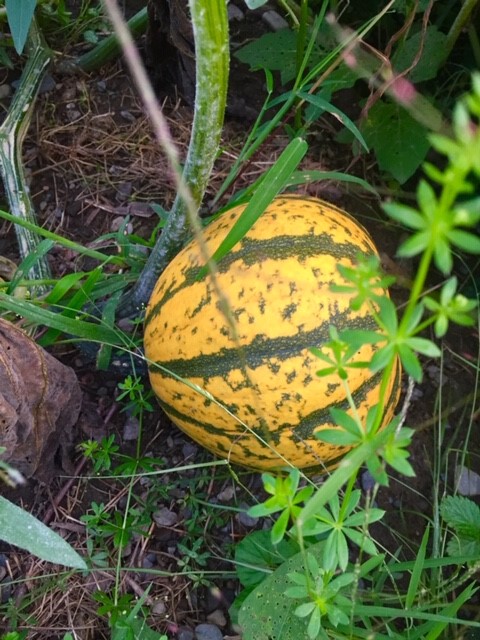




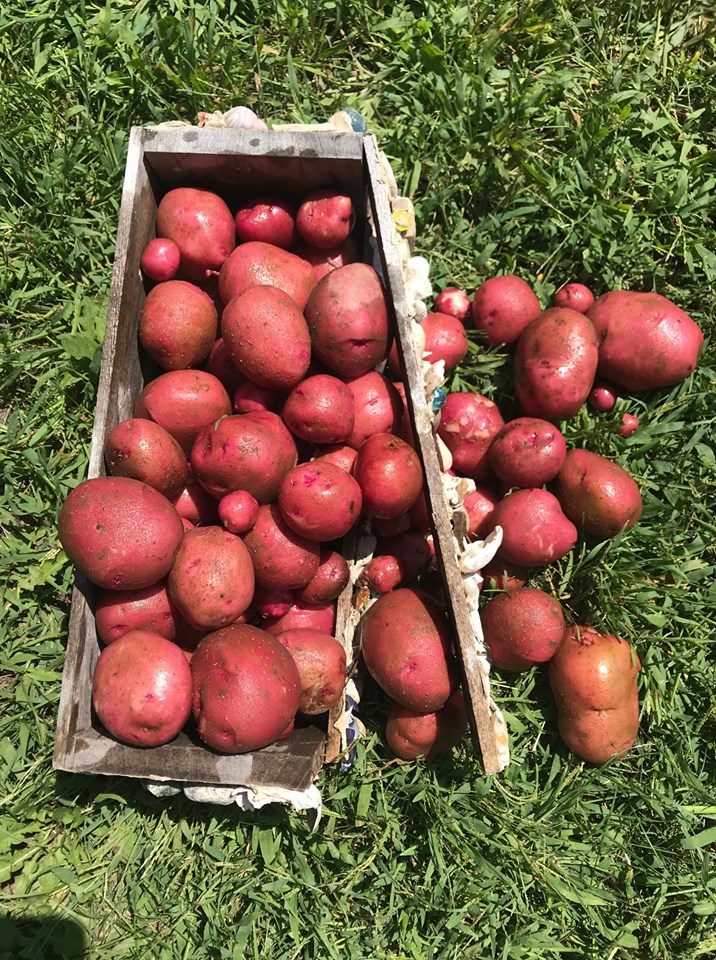







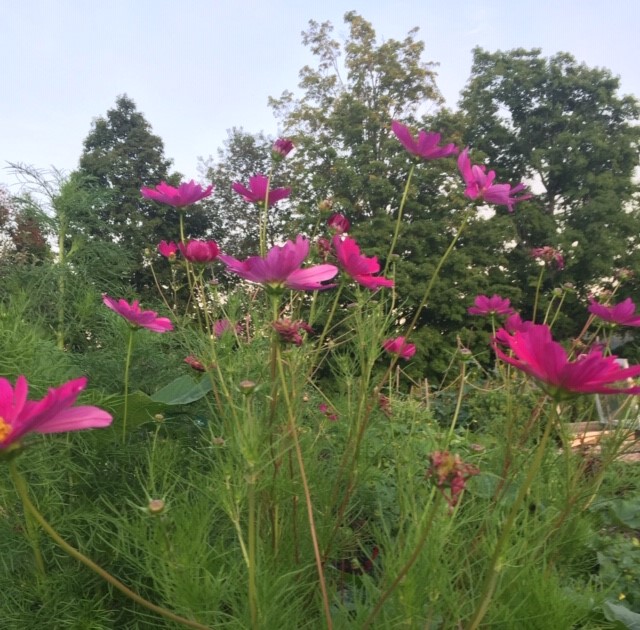

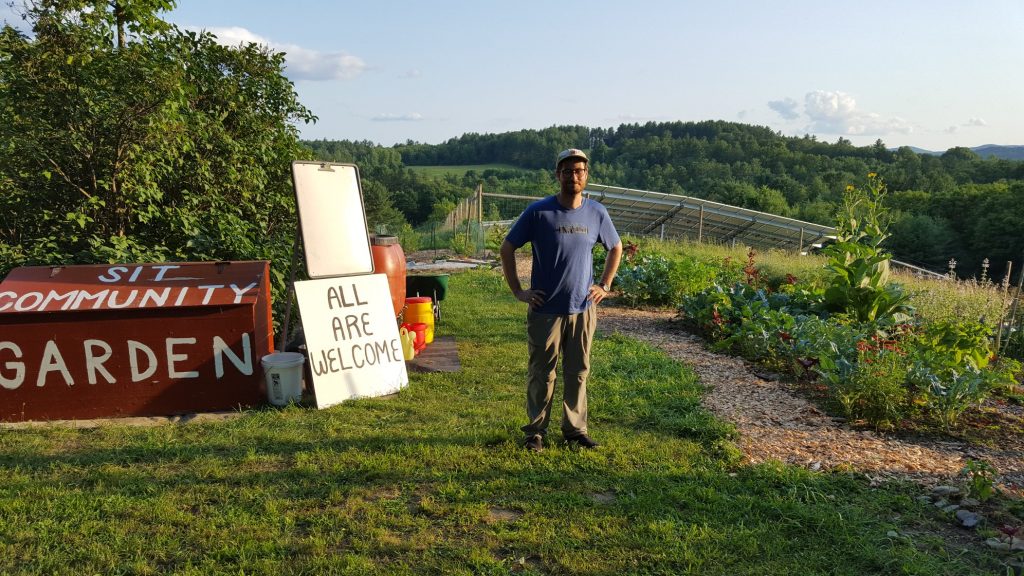
Until next year!
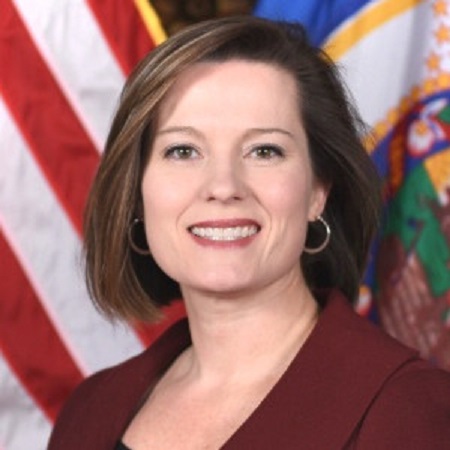
I needed to leave the U.S. to understand our country more realistically and assess our actions as a global power from a completely different perspective.
Can an SIT Study Abroad program influence the day-to-day functioning of state and city government in the United States? Jaime Tincher, deputy mayor of the City of Saint Paul, Minnesota, says yes.
Tincher, whose SIT experience took her to Mexico in 1997 followed by graduate coursework in conflict resolution, makes it very clear that SIT helped shape her career, starting with her early work in political advocacy and electoral campaigns in the South. Her work eventually brought her to Minnesota, where she immersed herself in party politics at the highest levels.
Originally from West Virginia and now the mother of two children, Tincher graduated from Denison University with a degree in communications and dreamed of being an international journalist in the mold of CNN’s Christiane Amanpour. From her junior year experience in Mexico, however, she developed a fascination with politics and power dynamics, with a rare view of class disparities and the scourge of racism.
“I needed to leave the U.S. to understand our country more realistically and assess our actions as a global power from a completely different perspective,” she says. “I began to pay close attention to who gets to sit at the policymaking table. I saw more clearly the barriers that prevented people from participating in the system, and I wanted to help create opportunities for those who were historically left out. I asked myself, is it a true democracy if you’re not knocking down those barriers?”
On a personal level, she says, “being able to travel and make my way in a different culture gave me confidence at a relatively young age. I became much more comfortable taking career risks and trying new things.”
I began to pay close attention to who gets to sit at the policymaking table. I saw more clearly the barriers that prevented people from participating in the system, and I wanted to help create opportunities for those who were historically left out
Confidence and risk-taking helped when she arrived in Minnesota in 2006. There, Tincher began working in voter outreach and mobilization and later as a campaign manager for a gubernatorial candidate who lost in a primary bid. After the election, she was asked to shift from politics to policy as the chief of staff for the newly elected governor, Mark Dayton, and Lieutenant Governor Tina Smith. When the governor’s term ended, she was tapped to become Saint Paul’s deputy mayor.
“A key benefit of my SIT experience,” she says, “was developing insights into the challenges of a multicultural society in the public sphere, which helped me in my work and worldview, especially when hiring staff,” as compared to those colleagues who came into politics and government with only academic or law school experiences. And she was able to draw on her education in conflict resolution in every job she’s had.
In fact, as deputy mayor, Tincher manages the daily operations of Saint Paul’s government, including its 14 departments and more than 3,000 employees. Managing statewide teams and multimillion-dollar budgets, she implements Mayor Melvin Carter’s vision of a city that works for all of Saint Paul’s 304,000 residents, applying the values of equity, innovation, and resilience by focusing on the administration’s three strategic pillars – lifelong learning, economic justice, and community-first public safety.
A key benefit of my SIT experience was developing insights into the challenges of a multicultural society in the public sphere …
When she was chief of staff in the governor’s office, Tincher managed the daily operations of the state government and its 34,000 employees, serving as a key advisor and leading the administration’s efforts on such high-profile issues as budget negotiations, transportation, education, hiring, and emergency and crisis management.
With a much broader perspective from her SIT experience, Tincher said she always strives to structure more open processes in which policy decisions are made with greater participation from the larger community.
“Politics and government are not just about votes and hearings,” she says. “Understanding the diverse needs of people and connecting with those people who have traditionally been left out of the political system are incredibly valuable,” Tincher says. “I credit SIT for this, and it’s helped me achieve success by drawing on a global perspective that I value.”
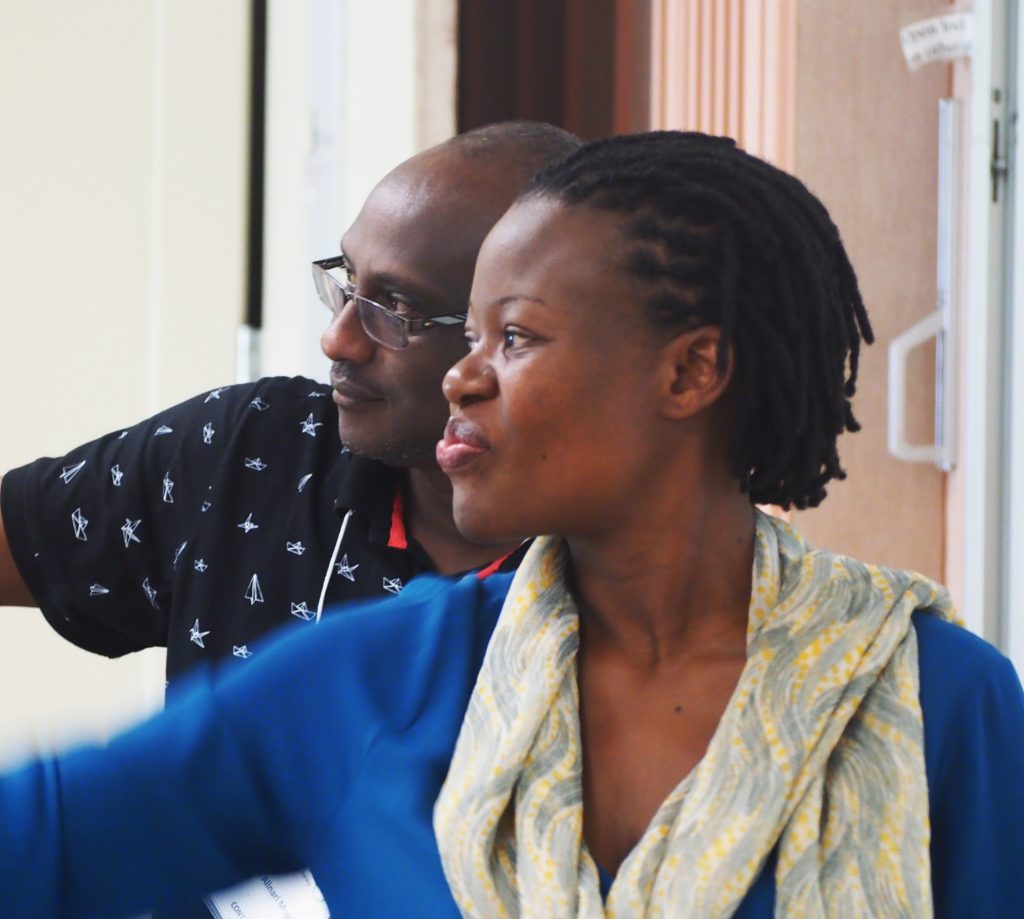
Every summer, an international group of peacemakers gathers on the SIT campus in Vermont. They learn from faculty, but they also learn from the often remarkable experiences of their fellow students.
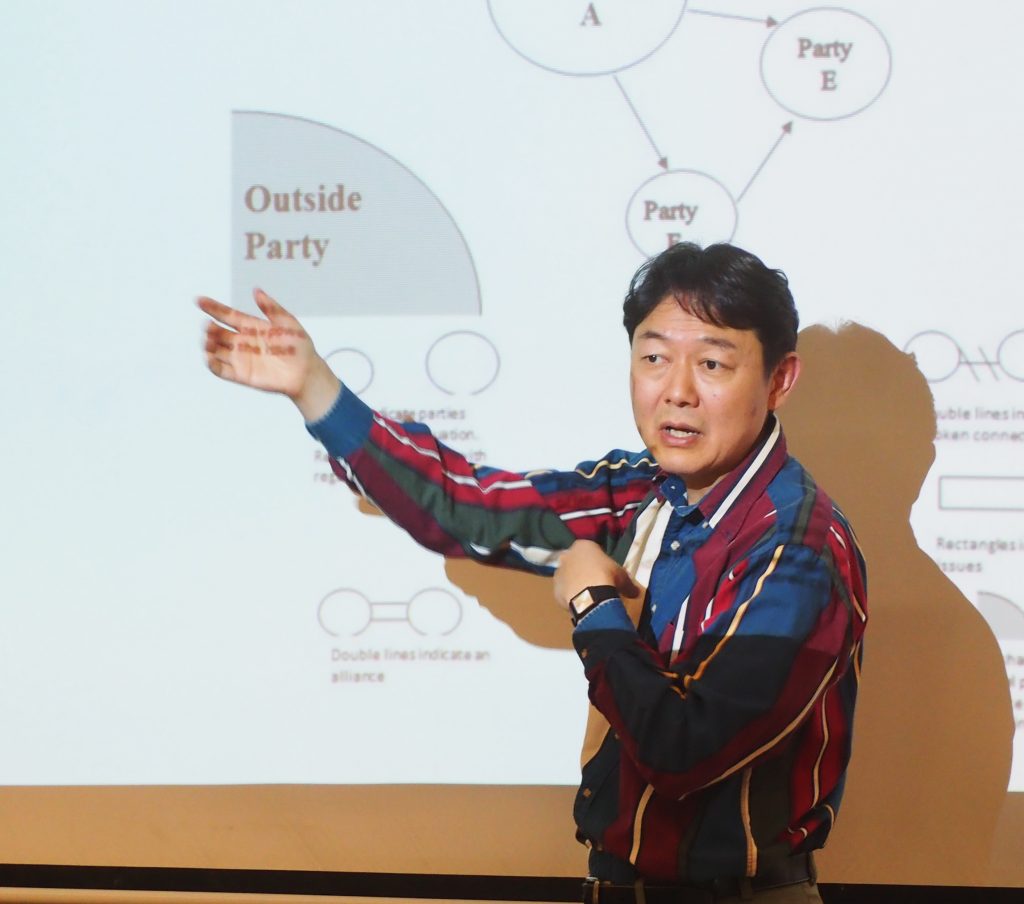
Participants in CONTACT — Conflict Transformation Across Cultures — spend two weeks in Vermont, taking core and elective courses and simply getting to know each other. Many spend a third week in Washington, D.C.
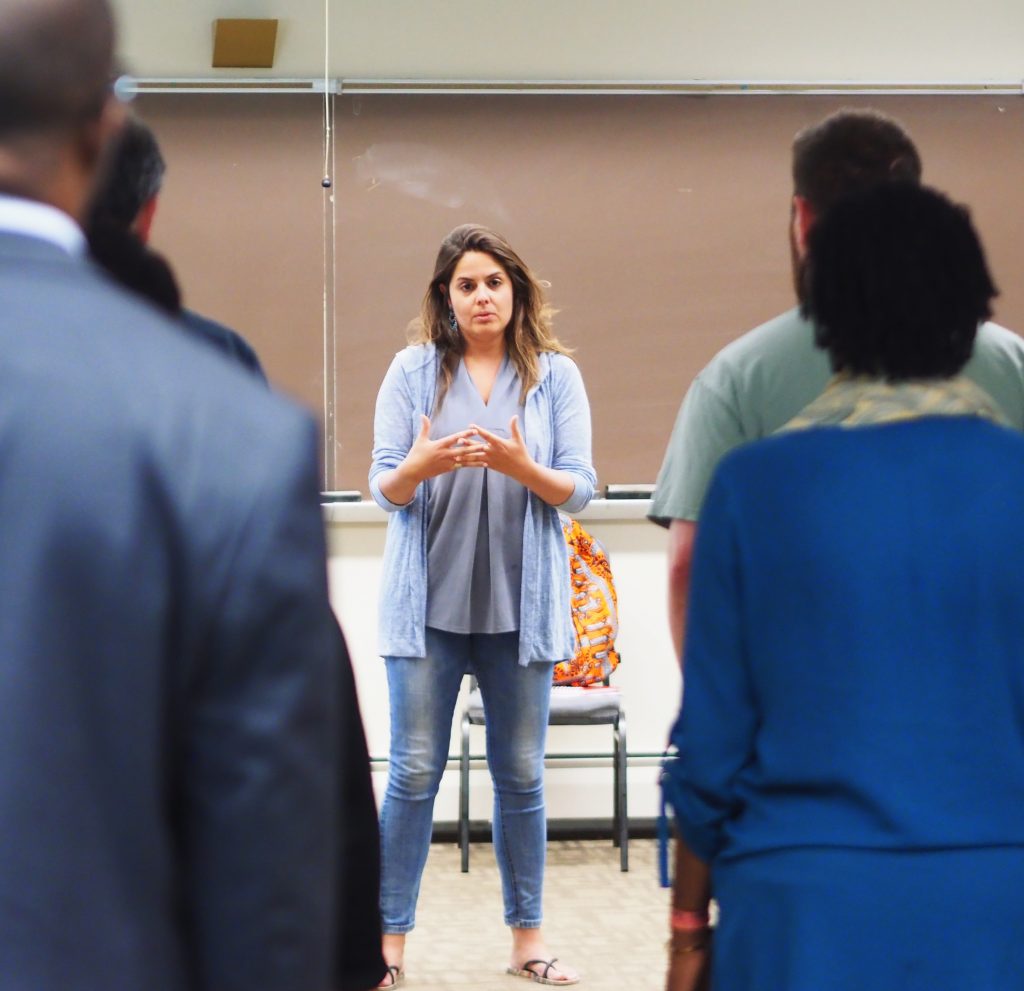
CONTACT classes get down to serious business, discussing intractable conflicts and the details of developing dialogue even in such difficult circumstances. But classrooms often emit sounds of music and laughter — participants lead exercises aimed at shared sense of purpose and cross-cultural understanding before the hard work begins.
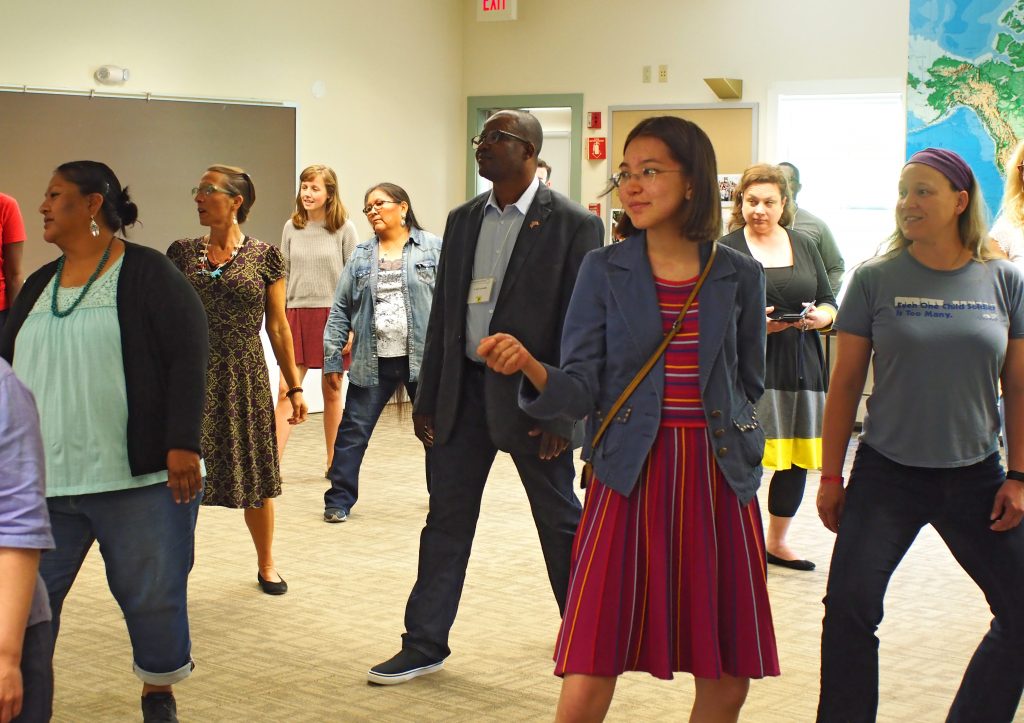
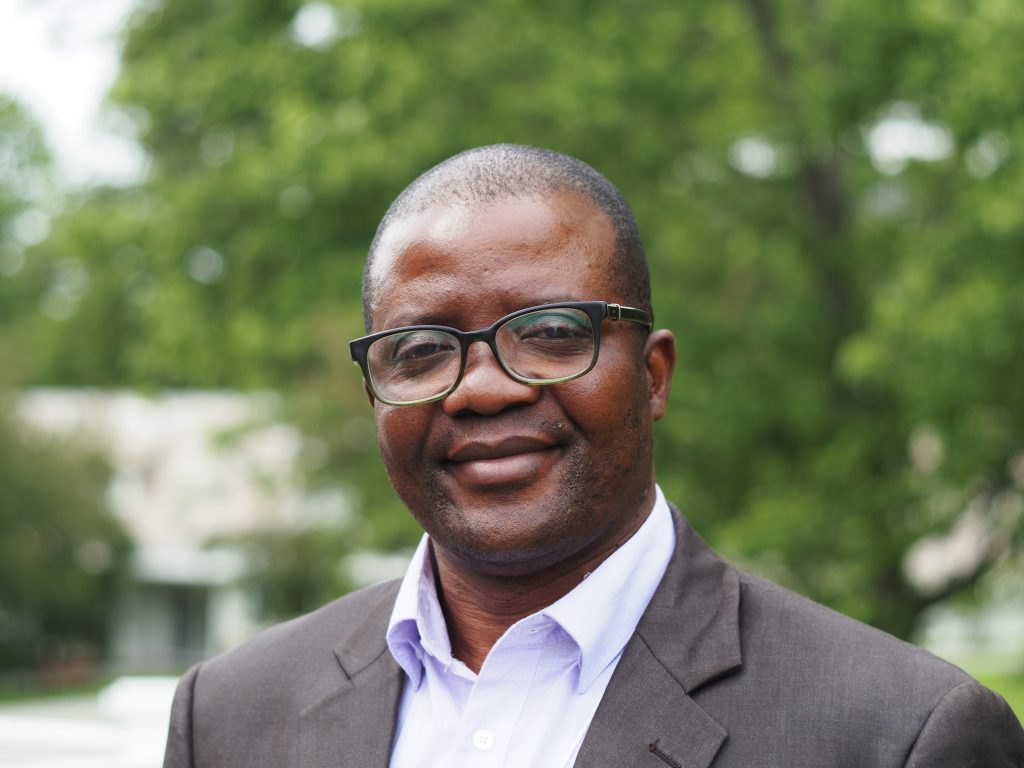
Abel Learwellie came to CONTACT to enrich his knowledge of the work he’s already doing as executive director of the Camp for Peace Liberia, which brings together youth to learn about non-violent conflict resolution and peace education. “Everything we do here is practical, which leaves a very good imprint on your mind. I’ll be able to apply these practical concepts in my day-to-day work,” he says.
Learwellie particularly enjoys the opportunities to exchange ideas with peers from across the world — including Rwanda, Spain, the U.S., and Canada — who have different experiences and perspectives on peace and conflict transformation. “Everyone is bringing their experiences,” he says. “I’m learning a lot from my peers and they’re also learning from me. It’s give and take.”
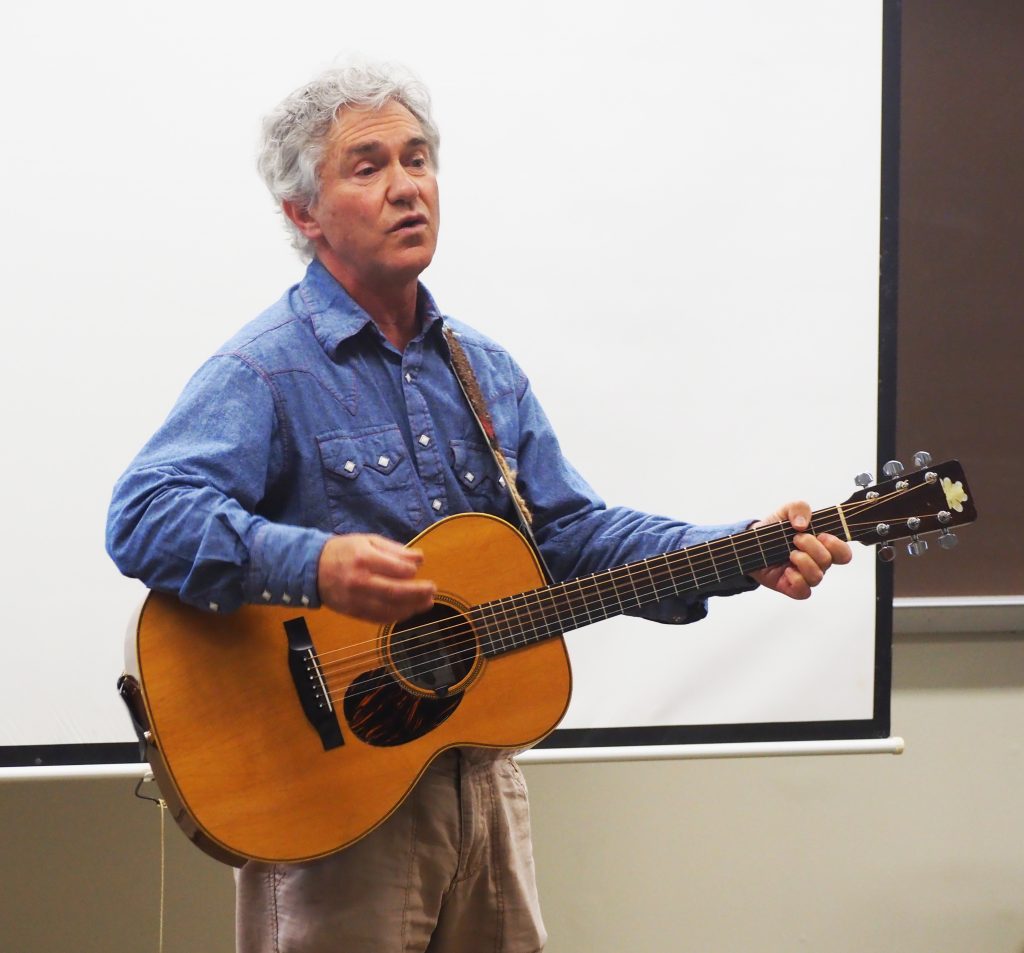
Some CONTACT participants are new to the field of peacemaking, or come to the program to augment work they do in other fields. Others, like Learwellie, arrive with careers in the field well underway.
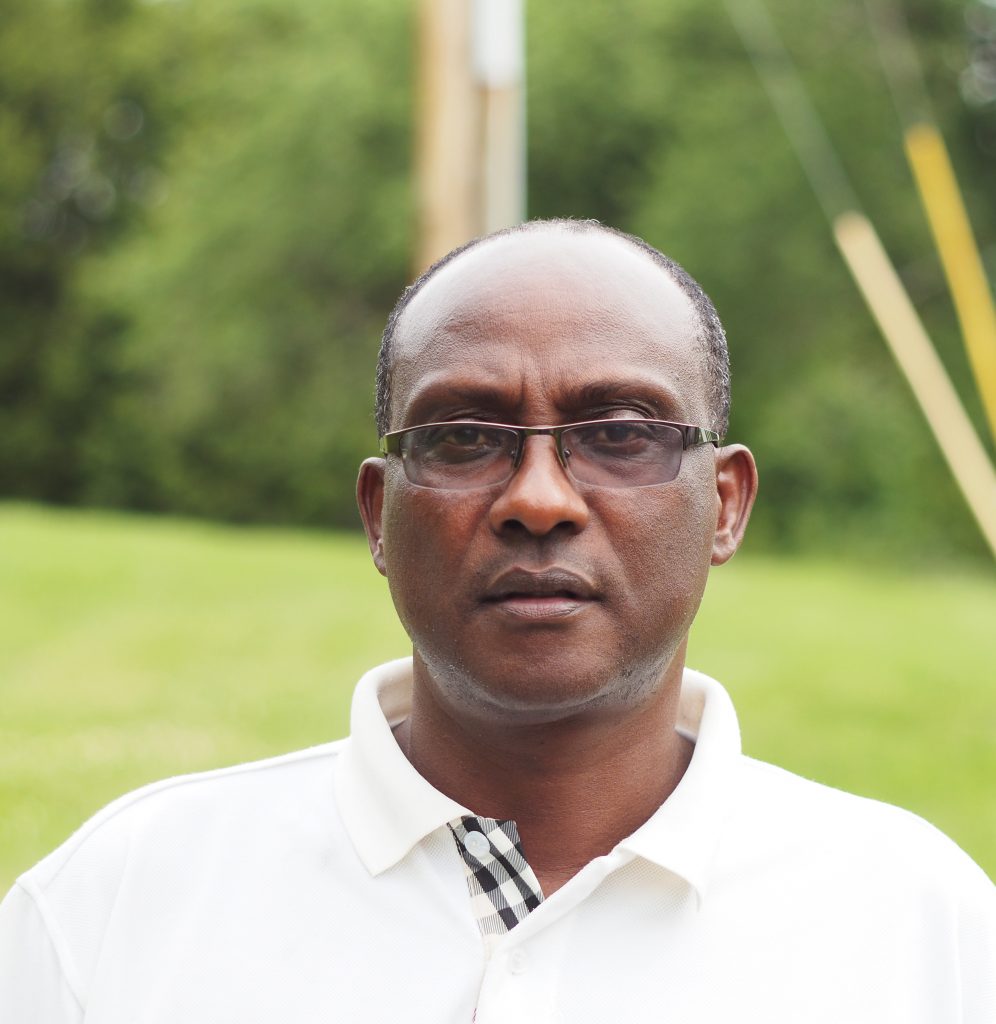
Conflict transformation is at the heart of Johnson Mugaga’s role at the National Unity & Reconciliation Commission of Rwanda, established to unite the country in the aftermath of that country’s 1994 genocide. As division manager in charge of programs, he often works with researchers and experts, and wanted to gain a better understanding of their technical knowledge. “The best place to get it is CONTACT,” he says.
Not only is the program giving him better insight into his work, but Mugaga says the scenic peace of the SIT campus has been very conducive to learning. “It’s a good environment for anything academic,” he says.
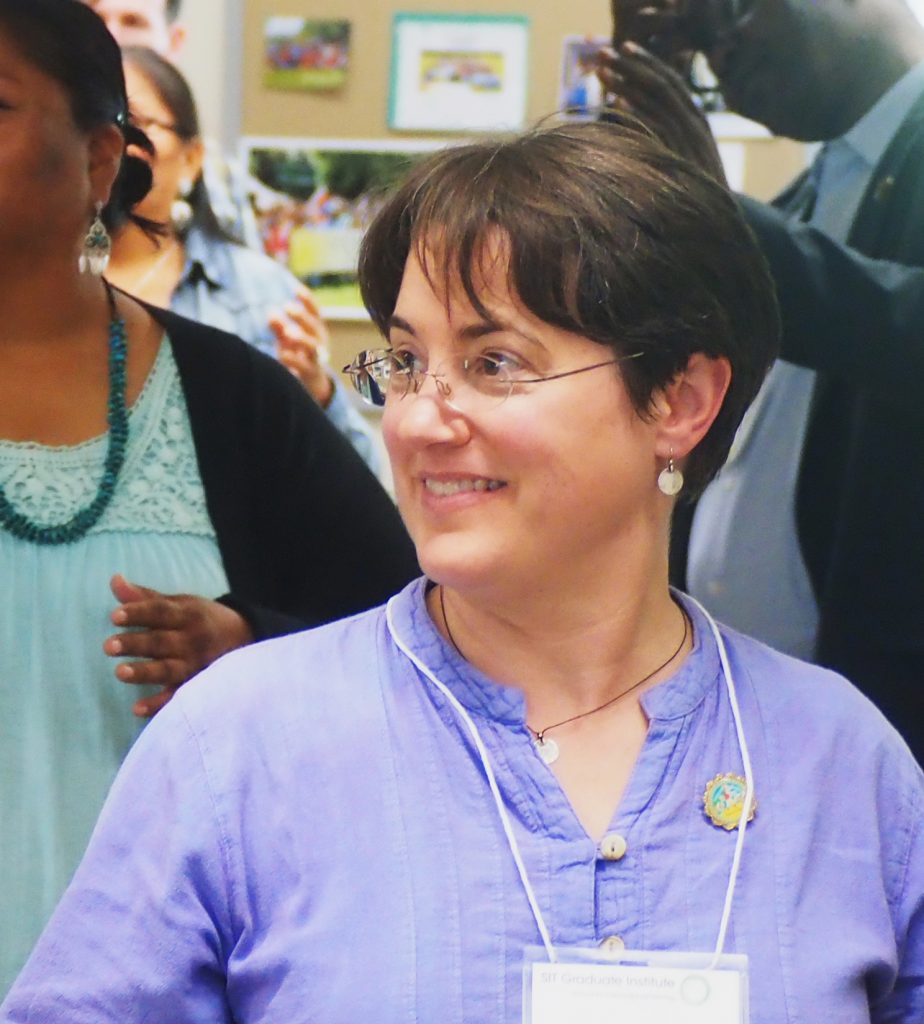
Another of this year’s participants is Kerry Ryer-Parke, who teaches voice at Bennington College in Vermont. Though at first glance it may seem unusual for a music teacher to study peacebuilding, it’s a natural progression for Ryer-Parke.
“I believe in music as a community-building activity. I’m looking to design courses that combine music and peacebuilding,” she says.
The organization Musicians Without Borders is also a key part of the CONTACT program, offering electives in just this sort of combination. Ryer-Parke says she’s found that their work has offered her a well-researched foundation for things she, as a music teacher, already found herself understanding on a more intuitive, instinctual level.
“They’ve discussed how trauma interferes with things like cognition. And music has the ability to bring the brain back into function because it uses the body, it uses rhythm, it uses both hemispheres of the brain.”
Echoing the sentiments of many students, Ryer-Parke adds that her time on campus has proven fruitful not solely because of academic work, but in part because of the opportunity to get to know people from different backgrounds and cultures.
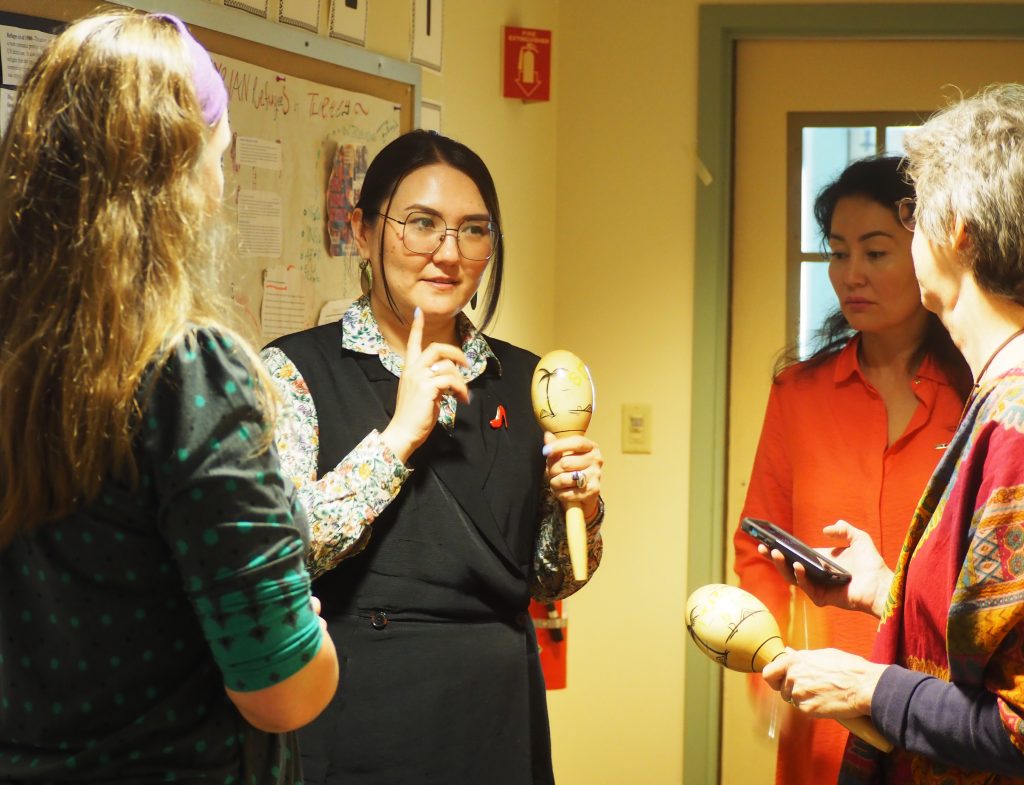
Jeff Unsicker completed graduate studies in international development, education, policy analysis, and administration. His research focused on the political economy of foreign aid for adult education, rural development, and Ujamaa socialism in Tanzania. A member of SIT’s core faculty from 1990-2016, Jeff has also served as academic dean and interim president of SIT Graduate Institute. While at SIT, he co-founded and served as general secretary of a global partnership for educating NGO leaders that has programs in Bangladesh and Zimbabwe and co-directed a program on leadership for social justice for the Ford Foundation’s International Fellowships Program.
Before joining SIT, Jeff was the coordinator of education and leadership development programs for an advocacy coalition of over 50 community-based organizations in Southern California; faculty director of the International Service and Development degree at an international liberal arts college in northern California; a research associate at the University of Dar es Salaam, Tanzania; and a Fulbright lecturer at the University of Botswana. His current teaching and practice are focused on policy analysis and advocacy by grassroots associations, NGOs, and other local, national, and transnational civil society organizations that are working for social change. He has recently done training and consulting for the advocacy divisions of BRAC in Bangladesh, the Center for Constitutional Rights, Oxfam America, and CARE. Jeff has also held various leadership and strategy planning roles in a statewide coalition of citizen, public interest, and environmental organizations that played a key role in retiring Vermont’s nuclear power reactor and replacing it with safe and green alternatives Jeff’s teaching, consulting, and activism are the basis for his book, Confronting Power: The Practice of Policy Advocacy (Kumarian Press, 2012).
Elizabeth Tannenbaum has been a practitioner in the field of ESOL teaching and teacher training for the past 40 years. As an English language teacher, teacher trainer, and curriculum developer, working both internationally and in the US, Elizabeth’s work has focused on adult literacy, refugee education, teaching practice for a variety of contexts, and techniques for working with large classes with limited resources.
Elizabeth has worked as a consultant with the Peace Corps, the English Language Specialist Program through the U.S. State Department, and the Center for Applied Linguistics. She was on the faculty of the SIT MAT Program for more than 25 years and is now a professor emerita. She was one of the founders of the SIT TESOL Certificate Program. Elizabeth has taught in Thailand, Indonesia, Mexico, Haiti, Korea, Iraq, Fiji, Tonga, Sudan, Ethiopia, Suriname, and the U.S. Her publications include literacy textbooks, including Picture Stories and More Picture Stories; articles on developing and implementing peace-building programs; and techniques for working with large, under-resourced classrooms.
Elizabeth is currently working with a language and cultural orientation program on the SIT campus for recently arrived Afghan refugees settling in the Brattleboro area.
Courses Taught
Teaching Refugees and Displaced Persons
Select Publications
Blanchard, K., Turpin, L & Tannenbaum, E. (2015) Mentoring graduate students in a community of reflective practice. Reflective practice conference papers. Univ of New Mexico
Guzman, E, Renaud, S. & Tannenbaum, E. (2013). Making connections: Activities for creating interpersonal tolerance in the language classroom. English teaching forum
Jerald, M., Tannenbaum, E. (2000) Learning languages on your own: Beyond hello. U.S. Peace Corps
Ligon, L., Tannenbaum, E. (1990). Picture stories. Longman-Pearson
Ligon, L., Rodgers, C. & Tannenbaum, E. (1991). More picture stories: Longman-Pearson
Renaud, S., Stantial, P. & Tannenbaum, E. (2007). Student-centered teaching in large classes with limited resources. English Teaching Forum, U.S. Department of State
Tannenbaum, E. (2010) Multilevel/diverse classrooms in TESOL classroom practice series
Research Interests
Refugee education
Patrick Moran holds a doctorate in educational studies. A member of SIT Graduate Institute faculty since 1977, he has a special interest in courses related to French and to the interface of intercultural communication and second language education, a topic he explores in Teaching Culture: Perspectives in Practice (Heinle & Heinle). A former Peace Corps TEFL volunteer in Côte d’Ivoire and Fulbright TEFL lecturer in Mali, Moran’s second language and teacher education experience includes work in Peace Corps training and materials development, language and culture orientation in France, and refugee resettlement education in Thailand and Indonesia. He is also an accomplished illustrator of language learning and teaching materials, including the highly acclaimed Lexicarry: Pictures for Learning Languages, published by the language teaching publishing house Pro Lingua, which he cofounded.
Diane Larsen-Freeman holds a PhD in linguistics from the University of Michigan, where she is professor emerita, having served on faculty from 2002–2012. She is also professor emerita at SIT Graduate Institute, where she was on faculty from 1978–2002. Currently, she is a visiting senior fellow at the University of Pennsylvania.
Dr. Larsen-Freeman has spoken at conferences in over 60 countries, and has published several books and more than 100 articles in her areas of interest. Her books include Discourse Analysis and Second Language Acquisition (edited); An Introduction to Second Language Acquisition Research, with Michael Long; The Grammar Book: Form, Meaning, and Use for English Language Teachers, with Marianne Celce-Murcia; Techniques and Principles of Language Teaching, with Marti Anderson; and Complex Systems and Applied Linguistics, with Lynne Cameron. Additionally, she has written about teaching grammar (Teaching Language: From Grammar to Grammaring) and has directed a grammar series (Grammar Dimensions: Form, Meaning, and Use).
In 1999, Dr. Larsen-Freeman was named one of 30 ESL pioneers in the twentieth century by ESL Magazine, and received the Heinle/Cengage Lifetime Achievement Award in 2000. Her book on complex systems received the 2009 Kenneth W. Mildenberger prize from the Modern Language Association; in the same year, the Hellenic American University conferred on Dr. Larsen-Freeman an honorary doctoral degree in humanities, and in 2010 she was awarded a Fulbright Distinguished Chair at the University of Innsbruck. She received the American Association for Applied Linguistics’ Distinguished Scholarship and Service Award in 2011. Dr. Larsen-Freeman is a former editor of Language Learning and currently serves as chair of the journal’s board of directors.
Claire Halverson holds a doctorate in education. A member of SIT Graduate Institute’s faculty since 1985, she taught the courses Organizational Behavior, Multicultural Organization Development, Practitioner Inquiry, and Social Identity. Her numerous publications include Cultural Context Inventory, which is widely used in the US and abroad in educational and business settings. She co-authored Effective Multicultural Teams: Theory and Practice. Halverson is a professional member of the National Training Laboratories Institute for Applied Behavioral Science and the recipient of World Learning’s first annual Diversity Award.
Beatriz Fantini, former director of the Language and Culture Department at SIT Graduate Institute, has worked at World Learning since 1966. She has served in various capacities, including as a Spanish teacher, a teacher trainer, and a supervisor for both the Graduate Institute and Study Abroad. She also ran the summer language programs in Mexico. Beatriz, who is the daughter of a Bolivian diplomat, was born in Italy; has lived in Peru, Venezuela, and Argentina; and speaks Italian, Portuguese, and Spanish. She is also a short story writer — her first stories were published in Venezuela and Bolivia when she was only 18. Before coming to Vermont, Beatriz worked in public relations for Citibank and as a copy writer for CORPA Publicity. She has worked as a teacher trainer for the Peace Corps and the Academy for Educational Development. Beatriz has served on several boards in Brattleboro and is currently a member of the Board of Directors of the Windham Worlds Affairs Council. In 2004, she was awarded the World Learning Presidential Medal in recognition of her contributions and commitment to the World Learning mission.
Alvino E. Fantini holds degrees in Latin American studies, anthropology, and applied linguistics. A senior faculty member since 1964, Alvino helped turn the Sandanona estate into the present SIT Graduate Institute. He has worked in language education and intercultural communication for over 40 years in the US and abroad, in intensive and extensive programs, in education and training, in field situations and academia, and with numerous languages and cultures. He has conducted significant intercultural research and published widely, including Language Acquisition of a Bilingual Child (Multilingual Press, 1985) and New Ways in Teaching Culture (TESOL, 1997). Alvino served as an advisory member of a panel that developed the National Foreign Language Standards for US education, is a past president of the Society for Intercultural Education, Training, and Research International (SIETAR), and is a recipient of SIETAR’s highest award, Primer Inter Pares. He currently serves as education consultant to the Federation of The Experiment in International Living, as director of the World Learning institutional archives, as occasional adjunct faculty and lecturer, and as an international consultant.
Ray received his doctorate in teacher education and curriculum studies and his master’s degree in international education from UMass Amherst. He also holds a graduate certificate in film studies. Before coming to SIT, Ray served as a lecturer teaching undergraduate and graduate courses on bilingual and multicultural education and as an associate dean and director of study abroad at Landmark College. His international experience includes working with the National Coalition Government of the Union of Burma as a human rights documentarian, a group leader for Where There Be Dragons, and an ESL teacher in Asia, Europe, and South America. His research interests focus on the significance of “outsider” experiences in the development of intercultural empathy and sensitivity for K–12 teachers and on the pedagogical use of information communication technologies (ICTs) and Web 2.0 platforms in classroom teaching.
Mari is an ecological designer, educator, and urban homesteader living in Asheville, North Carolina. She holds a doctorate from Harvard University and has taught Asian religions and environmental ethics at Reed College and the University of South Carolina. Alongside her academic work, she also trained as a permaculture designer and teacher, and in 2016 she transitioned to doing ecological landscape design and education full time. Mari is the founder of Project Grounded, which seeks to engage urban and suburban people in the regenerative farming movement through their daily choices. Her interdisciplinary background informs all of her work and allows her to connect the dots between ecological and social solutions to climate change, landscapes and landscapes of the mind, and grounded people and grounded carbon.
Peter Simpson currently serves as an advisory board member of Ball State University’s Center for International Development and as an independent consultant in the fields of international exchange, education, and development. Previously, Dr. Simpson worked with World Learning (WL) for 28 years in various administrative capacities and designing, delivering, and managing WL-administered programs with the International Visitors Leadership Program, Department of State youth exchanges, and other exchanges. He also served as a member of the board of directors of Global Ties (formerly National Council of International Visitors) and as WL’s representative on the board of directors of the Alliance for International Educational and Cultural Exchange. Through all of his experience, Dr. Simpson developed expertise in citizen exchange, public diplomacy and policy, proposal development, grants management, and program design and delivery. Dr. Simpson holds a doctorate in Germanic studies and linguistics from Cornell University; a master’s degree in Germanic studies from Princeton University; and a bachelor’s degree in German from Wesleyan University.
he/him/his
Internationally recognized as a leader in the field, Dr. Shallenberger has been honored through his role as a Fulbright Specialist, certification as an “Education Abroad Professional,” and multiple invitations to speak and consult around the world. He holds leadership positions in professional organizations such as NAFSA and the Forum on Education Abroad, reflecting his passions for comprehensive internationalization, advocacy, and research ethics.
Before coming to SIT, Dr. Shallenberger held faculty and administrative positions at DePaul University and the University of Redlands and taught at Elmhurst College, Mallinckrodt College, and National University. These previous positions include 30 years teaching global studies, intercultural communication and research, ethical leadership, and multicultural awareness; developing and coordinating travel study programs for adults in Europe, Asia, and Latin America; directing a BA program in Hong Kong; and expanding understanding of “the other.” He has given workshops on adult learning, cross-cultural communication, international education, and multicultural issues at universities in Brazil, El Salvador, Poland, Romania, and China and is the author of Reclaiming the Spirit: Gay Men and Lesbians Come to Terms with Religion (Rutgers University Press, 1998) as well as scores of articles and presentations.
Courses Taught
Advanced Concepts in International Education
Foundations in Intercultural Service, Leadership, and Management
Leadership and Management
Reflective Practice
Reflective Practice Doctoral Seminar
Select Publications
Camilo, M., & Shallenberger, D. (2018). The internationalization of vocational education in Brazil’s Federal institutes: Another model. Handbook of comparative studies on community colleges and global counterparts, 507-521. (2015). Learning from our mistakes: International educators reflect. Frontiers: The Interdisciplinary Journal of Study Abroad (XXVI), 248-263.
Shallenberger, D. (2014). Internationalization of education at home: Meeting the needs of students who cannot travel. In Tomorrow People Organization (Eds.), Proceedings of the Belgrade International Conference on Education 2014 (pp. 24-46). Belgrade, Serbia: Tomorrow People Organization.
McGury, S., & Shallenberger, D. (2009). Creating culturally resonant international educational partnerships to promote student learning. In International Forum of Teaching and Studies (Vol. 5, No. 1, pp. 68-72). American Scholars Press, Inc..
Shallenberger, D. (2009). Education abroad for adult students. International Educator, 18(1), 50.
McGury, S., Shallenberger, D., & Tolliver, D. E. (2008). It’s new, but is it learning? Assessment rubrics for intercultural learning programs. Assessment Update, 20(4), 6-9. (2005).
Developing effective intercultural leaders: Nurturing competencies of interculturally effective leaders and global citizens. In A. Safty (Ed.), Value leadership extended. Istanbul: University of Bahcesehir. (With Susan McGury)
Shallenberger, D. (1996). Reclaiming the spirit: The journeys of gay men and lesbian women toward integration. Qualitative sociology, 19(2), 195-215.
Alicea, M., Shallenberger, D., & Stanford, A. F. (1995). Negotiating boundaries: Conflict, personal loyalties, and the politics of diversity. Journal of Thought, 30(1), 35-54.
Select Presentations
Shallenberger, D., Bell, S. & Torres, M. (2018). Assessment, evaluation, and case studies: Can’t get no satisfaction [Conference Presentation]. Forum on Education Abroad Annual Conference, Boston, MA.
Shallenberger, D. & Chieffo, L. (2018). Program development to attract US students. [Workshops to support efforts of Ecuadorian HEIs to attract US students.] Offered in Guayaquil and Quito.
Shallenberger, D. (2016). Comprehensive internationalization. Workshops sponsored by the US State Department and given in Ecuador for multiple institutions at Escuela Superior Politécnica del Litoral; Universidad de las Américas; and Escuela Politécnica Nacional.
Shallenberger, D. McGury, S. & Levy, B. (2015). If I knew then what I know now. NAFSA Annual Conference, Boston, Massachusetts
Shallenberger, D. (2015). Learning from our mistakes: International educators reflect. NAFSA Annual Conference, Boston, Massachusetts
Shallenberger, D. & Camilo, M. (2015). Internationalization of vocational and professional education: The Brazilian Federal Institute. FAUBAI 2015 Conference, Cuiabá, Brazil.
Shallenberger, D. (2015). Curriculum internationalization. Universidade Federal Grande Dourados, Grande Dourados, MS, Brazil; Universidade Federal de Minas Gerais, Belo Horizonte, MG, Brazil; Universidade Federal do Mato Grosso, Cuiabá, MT, Brazil
Shallenberger, D. & Beelen, Jos. (2015). Internationalization at home. All-day invited workshop, FAUBAI International Conference, Cuiabá, MT, Brazil.
Shallenberger, D. & Gobbo, L. (2014). Internationalization at home: Inexpensive yet impactful strategies for internationalization. Half-day workshop given at NAFSA Regions X-XI Conference, Albany, New York
Shallenberger, D., Knobel, M., Srinavis, R., Leitherer, B. (2013). Internationalizing the STEM curriculum: Case studies for faculty. NAFSA International Conference, St. Louis, Missouri.
Research Interests
Socio-cultural integration of “gringos” into Ecuador and Mexico
Karla Giuliano Sarr is an international education practitioner and scholar. Karla’s interests include basic education, multilingual education, cultural relevancy, community-school relationships, literacy, girls’ education, training, and curriculum development. Karla has a passion for research methods and evaluation and has consulted internationally and domestically, including with School-to-School International, the International Rescue Committee, and with juvenile justice education programs in the US. Reveling in intercultural experiences, Karla’s portfolio has included work in various African countries such as the Democratic Republic of the Congo, Guinea, Ethiopia, Senegal, and Mozambique. Prior to joining SIT, Karla worked as a study abroad adviser at the University of Massachusetts and coordinated cultural exchange programs at Africa Consultants International/Baobab Center in Senegal, an NGO focusing on education and health programming. She also served as a Peace Corps Volunteer in Gabon. Karla speaks French, Wolof, and Spanish. She is an active member of the Comparative and International Education Society and the American Evaluation Association. Karla holds master’s and doctoral degrees in educational policy and leadership from the University of Massachusetts Amherst and a bachelor’s degree from Georgetown University’s School of Foreign Service. Outside of work, Karla enjoys cooking, running, and outdoor activities with her young family.
Courses Taught
Program Planning and Management
Dr. Robinson is a senior program manager with more than 20 years’ experience working with organizations in numerous countries. She has lived, worked, and traveled in 70 countries to date and has been involved in a variety of issues, including human rights, environmental justice, racism, sustainable development, emergency management, and violence against women. The thread that ties this work together is that it was all conducted from a social justice perspective and focused on issues of inclusion and marginalization.
She has over 10 years’ experience developing and delivering training courses and teaching. Most recently, she was director of the Emergency Readiness and Response Management degree program at the National Labor College and had a particular interest in climate change and disaster risk reduction. Prior to that, she was executive director of the National Legal Preparedness Training Program at the University of the District of Columbia. In that capacity, she was responsible for the development of the course Legal Issues and Disasters: Things You Should Know and its delivery across the 50 states and six US territories. She has also taught at Howard University and the University of Michigan.
She was the founder and executive director of International Possibilities Unlimited (IPU). For seven years in that capacity, she focused her attention on developing the capacity of domestic organizations to participate more effectively in international forums such as the United Nations. This process included helping domestic organizations develop a more global perspective, linking them with organizations in other countries involved in similar work, training delegations on United Nations (UN) processes, and participating in policy formation. IPU facilitated the participation of people from 34 countries in consultations, workshops, and delegations; worked with organizations to introduce new issues onto the UN agenda; disseminated regular informational email updates that reached thousands of people; and mentored a cadre of young adults, providing them with experiential learning opportunities.
Robinson received her BA in psychology from Williams College, her MBA with a specialization in international organizations from the University of Geneva in Switzerland, and her PhD in social psychology from the University of Michigan.
Venkatesh (Venky) Raghavendra is a social entrepreneur with nearly three decades of philanthropy and development experience. He has successfully built global partnerships and mobilized significant resources for a number of international and national organizations.
Venky is a consultant in the areas of philanthropy, fundraising, and social entrepreneurship. Some of his recent and current clients include the UK-based Common Purpose, New York–based American India Foundation, and Washington, DC–based Ashoka: Innovators for the Public.
Formerly chief philanthropy officer at the American India Foundation (AIF), Venky strengthened the US-India philanthropic and ideas exchange by promoting major giving and investments from corporations, high net-worth individuals, diaspora communities, and others. Prior to joining AIF, Venky was managing director of global partnerships at Ashoka: Innovators for the Public, in Washington, DC. At Ashoka, Venky promoted social entrepreneurship around the world by collaborating with business entrepreneurs and foundations. He was also involved in supporting social entrepreneurs in achieving scale and in the creation of communities of social entrepreneurs.
Venky’s career as a social entrepreneur began in his late teens, when he co-founded The Adventurers — an organization that creates livelihood opportunities for indigenous communities in the rainforests of South India through eco- and adventure-tourism.
Venky is a trustee of Ashoka India and is on the board of several not-for-profits and is an advisor to several others. He writes frequently on social issues for a variety of media, including the Wharton Journal, Khaleej Times, Times of India, Indian Express, and The Hindu, among others. He speaks regularly at a number of universities around the world on the topics of social entrepreneurship and innovation, cross-sectoral partnerships for community change, and philanthropy. He has taught social entrepreneurship to graduate-level students in the United States and in India.
Kū Kahakalau is a native Hawaiian educator, researcher, cultural practitioner, grassroots activist, songwriter, and expert in Hawaiian language, history, and culture. A resident of Hawaiʻi Island, Dr. Kahakalau is the first person in the world to earn a PhD in indigenous education. Dr. Kahakalau’s research has resulted in an indigenous research methodology called Māʻawe Pono as well as a highly successful pedagogy of aloha (love/compassion), which promotes the revitalization of Hawaiian language and culture, hands-on learning in the environment, community sustainability, food sovereignty, and Hawaiian self-determination in education and beyond. Over the past 25 years, Dr. Kahakalau has founded and administered multiple, innovative Hawaiian-focused programs, including a series of Hawaiian summer immersion programs, a Hawaiian academy, Hawaiʻi’s first culturally driven PK–12 charter school, an Indigenous teacher licensing program, and a successful social enterprise. Her latest efforts center on developing EA Ecoversity, a Hawaiian-focused postsecondary program that transitions Hawaiian youth to culturally grounded, happy, successful, thriving adults and responsible global citizens able to walk comfortably in multiple worlds. EA, which stands for Education with Aloha, also means sovereignty in Hawaiian, since EA Ecoversity is envisioned to become the first component of an independent Hawaiian system of education.
Manish is deeply committed to regenerating our diverse local knowledge systems and cultural imaginations and is one of the strong planetary voices for de-schooling our lives. He has served for the past 20 years as coordinator and co-founder of Shikshantar: The Peoples’ Institute for Rethinking Education and Development based in Udaipur, India, and is co-founder of the Swaraj University, Creativity Adda, Learning Societies Unconference, Walkouts-Walkon network, Udaipur as a Learning City, and Families Learning Together network in India. He recently helped launch the global Ecoversities Network and the global Giftival Network. He is a featured speaker / advisory member of the Economics of Happiness network for localization. He has edited several books on vimukt shiksha (liberating learning) on themes such as learning societies, unlearning, gift culture, community media, and tools for deep dialogue. Prior to this, Manish worked as one of the principal team members of the UNESCO Learning Without Frontiers global initiative. He has also been a consultant to UNICEF, World Bank, and USAID in Africa, South Asia, and the former Soviet Union. Manish also worked as an investment banker with Morgan Stanley. He has been trying to unlearn his master’s degree in education from Harvard University and his BA in economics, international development, and political philosophy from Brown University. He and his wife Vidhi have been unschooling themselves with their 15-year-old daughter, Kanku, in Udaipur, Rajasthan. Manish is passionate about urban organic farming, filmmaking, simulation gaming, bicycling, group facilitation, clowning, intercultural dialogue, and slow food cooking.
John is a senior instructor in the Department of Educational Leadership at Florida Atlantic University, where he teaches master’s- and doctoral-level courses in the school leadership and adult and community education programs. He chairs the College of Education Diversity Committee and serves on the University’s Diversity Platform Council. He is currently one of four project coordinators of a Wallace Foundation $5.8 million grant designed to develop a fully revised master’s degree in educational leadership in partnership with the Florida Department of Education and the public school districts of Broward, Palm Beach, St. Lucie, and Martin counties in Southeast Florida. At the heart of the new program is the preparation of school leaders as reflective, critical systems thinkers who are committed to the ideals of diversity, inclusion, equity, and social justice in the service of their schools and communities.
John is the founder of Regenerative Organizations, a process consulting firm that specializes in regenerative leadership coaching and training and facilitating the shift of organizations toward sustainability and regenerative practice in business, community, and education. This work is based on original research conducted with highly effective leaders in organizations that are creating new organizational paradigms in entrepreneurship, social entrepreneurship, government, industry, and education.
